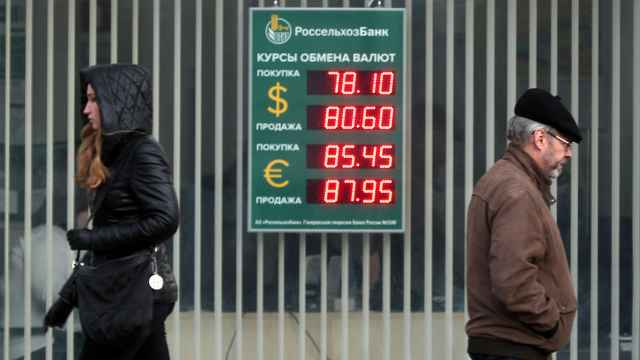(Bloomberg) — OPEC and Russia concur on two things: their oil production cuts are working and they should be extended deeper into next year. What’s proving more elusive is an accord on when and how to end the curbs.
As ministers gather in Vienna, this unanswered question is the main reason Russia has yet to give its formal assent to a rollover of their agreement until the end of next year, according to people familiar with the matter. Moscow wants clarity about what comes afterward -- something the Organization of Petroleum Exporting Countries doesn’t usually provide.
"We will talk about it," Kuwaiti Oil Minister Issam Almarzooq said Tuesday, when asked if there would be an exit strategy discussion this week.
In previous rounds of OPEC cuts the exit strategy was traditionally an afterthought. When the group wanted out, it simply started cheating on its own cuts by slowly, often secretly, increasing production. The current agreement involves ten non-members including Russia, which would prefer a clear road map over the obscure habits of a 57-year-old cartel.
“There is always debate -- every country has an equal weight to voice their view,” Saudi Energy Minister Khalid Al-Falih said in Dubai on Tuesday before traveling to Vienna. “We’re looking forward to getting everybody engaged in a robust discussion and we’ll come up with the right decision.”
The question of how to wind down a long market intervention is a familiar dilemma for central banks, which have struggled to avoid upsetting investors as they consider ways to end years of cheap money. The so-called taper tantrum that followed hints the U.S. Federal Reserve would scale back bond purchases in 2013 is a powerful reminder of the potential difficulties of ending OPEC’s cuts.
Shared Interests
The differences between OPEC and Russia are more about tactics than strategy, because all the producers want to avoid stoking price volatility, according to delegates and analysts.
Like Russia, "Saudi Arabia doesn’t want to over-tighten the market," said Bob McNally, founder of consultant Rapidan Energy Group LLC and a former oil official at the White House. Neither does the kingdom want to signal an exit before the job is done, he said.
The surplus of oil stocks in industrialized countries, which has weighed on prices for three years, hasn’t yet been eliminated. The oversupply relative to the five-year average has more than halved since January, but it still stands at 140 million barrels, OPEC Secretary-General Mohammad Barkindo said on Monday.
Uncertain Outlook
For OPEC, leaving the exit strategy as murky as possible allows for greater flexibility next year. There’s a significant divergence in 2018 supply and demand forecasts, with the International Energy Agency seeing demand for OPEC’s crude 1 million barrels a day lower than the cartel’s own analysis. They disagree both on the strength of demand growth and the speed of the expansion in U.S. shale output.
For Russia, an exit strategy seems to be as important as the duration of the extension, according to people involved in the closed-door negotiations. Its need for clarity is greater than most OPEC members because its economic policy making is more complex, including a floating exchange rate that fluctuates with the oil price.
Moscow also wants a schedule of how the cuts will end so it can guide privately-owned Russian oil companies and their foreign partners about future output, the people said, asking not to be named because the talks are private. Most OPEC members have a single national oil company that answers to the government.
Igor Sechin, chief executive officer of state-run Rosneft PJSC, and Lukoil PJSC’s billionaire boss Vagit Alekperov have questioned the wisdom of prolonging the deal when oil prices are already above $60 a barrel.
Russia is "unlike OPEC countries that have national oil companies, and therefore are able to turn on and off production easier," said Amrita Sen, chief oil analyst at consultant Energy Aspects Ltd. in London. Moscow needs to plan a bit more given the involvement of several different producers, she said.
Middle Ground
The two sides are seeking a middle ground by including language that would make any extension of the cuts conditional on changes in the global oil supply and demand balance, said the people familiar with the matter. Even if the group agrees a nine-month extension without conditions -- as a technical committee of senior officials was said to recommend on Tuesday evening -- they have another scheduled ministerial meeting mid-year with the power to rewrite policy.
The question of whether OPEC can satisfy Russia’s concerns has prompted doubts on Wall Street. Both Citigroup Inc. and Goldman Sachs Group Inc. told investors -- who are largely betting on an extension -- that Thursday’s meeting could deliver disappointment and a drop in oil prices.
"Significant Saudi corralling is likely to be needed in order to get a full nine-month extension done," said Ed Morse, head of commodities research at Citigroup and a veteran OPEC watcher.
A Message from The Moscow Times:
Dear readers,
We are facing unprecedented challenges. Russia's Prosecutor General's Office has designated The Moscow Times as an "undesirable" organization, criminalizing our work and putting our staff at risk of prosecution. This follows our earlier unjust labeling as a "foreign agent."
These actions are direct attempts to silence independent journalism in Russia. The authorities claim our work "discredits the decisions of the Russian leadership." We see things differently: we strive to provide accurate, unbiased reporting on Russia.
We, the journalists of The Moscow Times, refuse to be silenced. But to continue our work, we need your help.
Your support, no matter how small, makes a world of difference. If you can, please support us monthly starting from just $2. It's quick to set up, and every contribution makes a significant impact.
By supporting The Moscow Times, you're defending open, independent journalism in the face of repression. Thank you for standing with us.
Remind me later.






